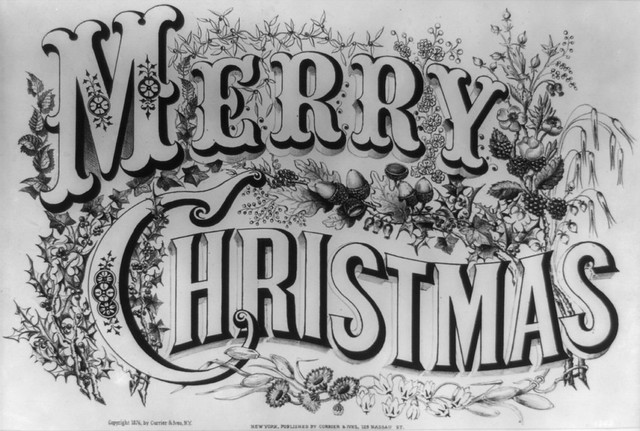I’m not talking about the idiocy stirred up by Faux News to generate ratings. I’m talking about a truly disturbing problem. However, this problem is somewhat related to whether one says “Merry Christmas” or “Happy Holidays.” No, I’m wondering which side of the Pond has it correct? Is it “Merry Christmas” or “Happy Christmas,” as the Brits would say?
The use of the word “Merry” is unique to holidays. As the Oxford English Dictionary Blog puts it…
From Happy Easter to Happy Halloween to countless Happy Birthdays, our felicitations hardly vary from one celebration to the next. Christmas is the notable exception, with the dominant descriptor being Merry. We wish our friends a Merry Christmas but a Happy New Year. Is there any difference?
We tend to think of of the phrase “Happy Christmas” as being primarily British, but the phrase was used in James Clement Moore’s “A Visit from St. Nick”, published in America. Dickens’s “A Christmas Carol” uses the phrase “Merry Christmas.” Even the carol “We Wish You a Merry Christmas” originated in 16th century England. It’s actually been within the last century or so that a geographical distinction has emerged.
According to the OED blog, the phrase “Merry Christmas” is the older of the two. The word “merry” is the adjective form of “merriment,” which in turn was associated with excessive celebration, usually with alcohol – lots of wassailing. Using the word “merry” was the 16th century equivalent of saying, “Party on!” This gives a whole new meaning to the phrase “Robin Hood and his merry men.”
It’s been well-documented that religious leaders frowned upon such excessive celebration at Christmas. The Puritans, in particular, did not celebrate. Christmas Carols as we know them now were not sung in religious services. In fact the history of the word “carol” has more to do with dancing, than with singing, and as such was certainly not tolerated as part of a service. While songs like “God Rest Ye Merry, Gentlemen” have heavy religious overtones appropriate to the day, the original meaning was quite different from how we see the song with today’s understanding. An exhortation to go out and party because Christ is born probably wouldn’t go over well, even in today’s churches.
In the late 1800s another element came into play – the Temperance Movement. It was this group that promoted “Happy Christmas” as a replacement for “Merry Christmas.” The OED blog gives an example of a conversation from 1872 publication called Band of Hope:
Annie: I hope you will have a happy Christmas, whatever you may mean by a merry one.
Mary: I mean what I say. What do you mean by a merry Christmas?
Annie: Well, many people understand it to mean a jovial, drunken Christmas. They cannot spend the day without using intoxicating liquors; but I don’t believe in them, and I hope I never shall.1873 Onward Reciter 45
Although the Temperance Movement had more success in America, the phrase “Happy Christmas” did not. Part of this was due to usage “Merry Christmas and Happy New Year” as a way to distinguish the two holidays. Happy Holidays was meant to be inclusive of both, long before the phrase was derided by the idiots at Fox.
So, in the spirit of 16th century, I say unto all of my friends and readers, Party On! It’s Christmas time!
